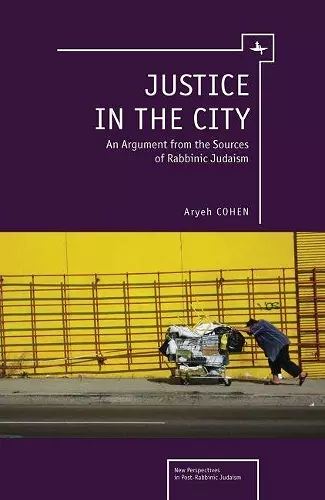Justice in the City
An Argument from the Sources of Rabbinic Judaism
Format:Hardback
Publisher:Academic Studies Press
Published:30th Jan '12
Currently unavailable, and unfortunately no date known when it will be back

This book presents a compelling argument for a just city as a community of obligation, emphasizing responsibility towards marginalized individuals.
In Justice in the City, the author explores the concept of a just urban environment through the lens of the Rabbinic textual tradition, particularly the Babylonian Talmud. By incorporating the philosophical insights of Emmanuel Levinas, a renowned French Jewish thinker, the text argues that a just city must function as a community of obligation. This perspective emphasizes that citizenship carries with it the responsibility to care for those who may not always be visible, such as the poor, the homeless, and workers. The privilege of being part of a city should come with the duty to support and uplift these marginalized individuals.
The book delves into the idea that justice is not merely a legalistic framework but a relational ethic that binds community members together. It suggests that recognizing and addressing the needs of Others is essential for the health of the city as a whole. The author presents a compelling case that the well-being of the community is intrinsically linked to the treatment of its most vulnerable members.
In the latter part of Justice in the City, the focus shifts to a detailed examination of homelessness, labor issues, and the principles of restorative justice. This analysis is grounded in the theoretical framework established earlier in the text. The insights provided will be valuable not only for scholars and students in Jewish studies but also for anyone interested in contemporary urban challenges and the pursuit of social justice.
“This is an extremely important, interesting and creative project. Nothing like it really exists. Here is someone who combines erudition in the classical literature of Judaism (especially the Babylonian Talmud) with his passion for social justice, both as an activist and as someone who thinks in highly sophisticated terms about the tradition of political philosophy and of social theory inspired by religious traditions.”
—Charlotte Fonrobert, Taube Center for Jewish Studies, Stanford UniverISBN: 9781936235643
Dimensions: unknown
Weight: unknown
160 pages